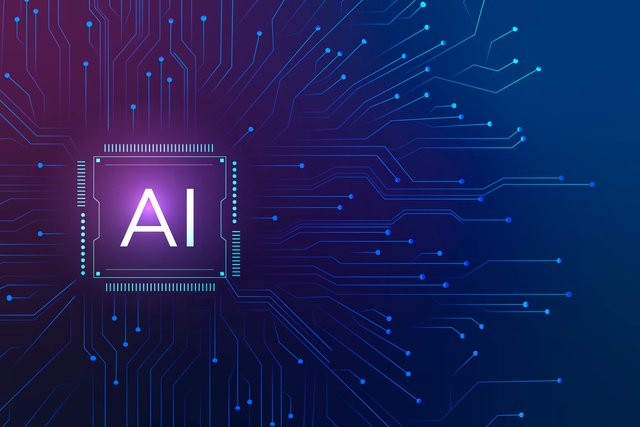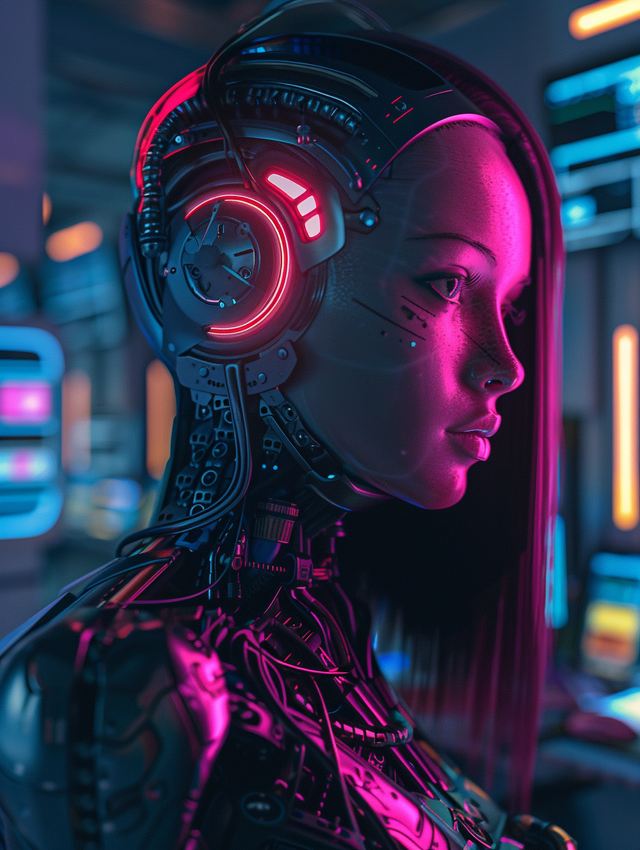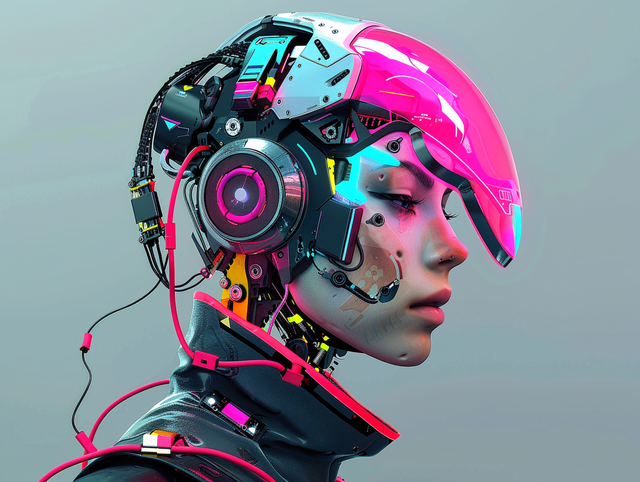Artificial Intelligence and Its Modern Applications
Introduction
Artificial Intelligence (AI) has revolutionized numerous industries, transforming how businesses operate and how individuals interact with technology. From healthcare and finance to education and entertainment, AI's influence is pervasive, offering unprecedented opportunities and presenting unique challenges. This article explores the modern applications of AI, highlighting advancements, case studies, and the ongoing debates surrounding its ethical implications.

1. AI in Healthcare
Transforming Diagnostics and Treatment
AI has significantly impacted the healthcare sector by enhancing diagnostic accuracy and personalizing treatment plans. Machine learning algorithms can analyze vast amounts of medical data to identify patterns and predict outcomes, leading to earlier and more accurate diagnoses.
- Radiology: AI-powered imaging systems can detect anomalies in X-rays, MRIs, and CT scans with remarkable precision, aiding radiologists in diagnosing diseases such as cancer and cardiovascular conditions.
- Predictive Analytics: AI can analyze patient data to predict the likelihood of disease outbreaks, hospital readmissions, and treatment responses, enabling proactive healthcare management.
Table: AI Applications in Healthcare
| Application | Description | Examples |
|---|---|---|
| Radiology | AI systems detect anomalies in medical images. | IBM Watson Health, Aidoc |
| Predictive Analytics | AI predicts disease outbreaks and treatment responses. | Health Catalyst, Google Health |
| Robotic Surgery | AI enhances precision in surgical procedures. | da Vinci Surgical System, Intuitive |
| Virtual Health | AI-driven assistants provide medical information and appointment scheduling. | Ada Health, Babylon Health |
Robotic Surgery and Virtual Health Assistants
- Robotic Surgery: Surgical robots, guided by AI, enhance precision in complex procedures, reducing recovery times and improving patient outcomes. Systems like the da Vinci Surgical System are already in use in many hospitals.
- Virtual Health Assistants: AI-driven virtual assistants, such as chatbots, provide patients with medical information, symptom checks, and appointment scheduling, improving access to healthcare services.
2. AI in Finance

Enhancing Fraud Detection and Risk Management
AI is transforming the finance industry by improving fraud detection and risk management practices. Machine learning models can analyze transaction patterns to identify suspicious activities and predict potential fraud before it occurs.
- Fraud Detection: Banks and financial institutions use AI to monitor transactions in real-time, identifying unusual patterns that may indicate fraudulent activity.
- Credit Scoring: AI algorithms assess creditworthiness by analyzing a broader range of data points than traditional methods, offering more accurate risk assessments.
Table: AI Applications in Finance
| Application | Description | Examples |
|---|---|---|
| Fraud Detection | AI monitors transactions to detect suspicious activities. | PayPal, Mastercard |
| Credit Scoring | AI analyzes diverse data points for credit risk assessment. | Upstart, ZestFinance |
| Algorithmic Trading | AI executes trades based on real-time market data and trends. | QuantConnect, Alpaca |
| Personal Finance | AI-powered apps provide budgeting advice and spending insights. | Mint, YNAB |
Algorithmic Trading and Personal Finance Management
- Algorithmic Trading: AI-driven trading algorithms execute trades at high speeds and volumes, optimizing investment strategies based on real-time market data and trends.
- Personal Finance: AI-powered apps like Mint and YNAB help individuals manage their finances by providing personalized budgeting advice and spending insights.
3. AI in Education

Personalized Learning and Intelligent Tutoring Systems
AI is reshaping education by offering personalized learning experiences tailored to individual students' needs. Intelligent tutoring systems (ITS) use AI to provide customized instruction and feedback.
- Adaptive Learning Platforms: Systems like Khan Academy and Coursera leverage AI to adapt course content based on student performance, ensuring effective learning at an individual pace.
- Intelligent Tutoring: AI tutors can provide one-on-one assistance in subjects like math and science, offering explanations and practice problems tailored to each student's strengths and weaknesses.
Administrative Automation and Predictive Analytics
- Automation: AI automates administrative tasks such as grading, scheduling, and student enrollment, allowing educators to focus more on teaching and student engagement.
- Predictive Analytics: Schools and universities use AI to predict student performance, identify at-risk students, and develop intervention strategies to improve academic outcomes.
Table: AI Applications in Education
| Application | Description | Examples |
|---|---|---|
| Adaptive Learning | AI adapts course content based on student performance. | Khan Academy, Coursera |
| Intelligent Tutoring | AI provides personalized tutoring in various subjects. | Carnegie Learning, Smart Sparrow |
| Administrative Tasks | AI automates grading, scheduling, and enrollment processes. | Gradescope, Parchment |
| Predictive Analytics | AI predicts student performance and identifies at-risk students. | Civitas Learning, Blackboard Predict |
4. AI in Entertainment
Content Creation and Personalization
AI is revolutionizing the entertainment industry by enabling content creation and personalization at an unprecedented scale.
- Content Creation: AI algorithms can generate music, art, and even news articles. Tools like OpenAI's GPT-3 can write coherent and contextually relevant text, while AI in music production can compose and remix tracks.
- Personalization: Streaming services like Netflix and Spotify use AI to analyze user preferences and behavior, recommending content tailored to individual tastes.
Table: AI Applications in Entertainment
| Application | Description | Examples |
|---|---|---|
| Content Creation | AI generates music, art, and news articles. | OpenAI GPT-3, Amper Music |
| Personalization | AI recommends content based on user preferences. | Netflix, Spotify |
| Visual Effects | AI enhances CGI in movies and TV shows. | Weta Digital, Industrial Light & Magic |
| Gaming | AI drives NPC behavior and adapts game difficulty. | Unity, Unreal Engine |
Enhancing Visual Effects and Gaming
- Visual Effects: AI enhances visual effects in movies and TV shows, enabling the creation of realistic CGI characters and environments. Deep learning techniques are used to de-age actors, create digital doubles, and more.
- Gaming: AI drives non-player characters (NPCs) in games, creating more immersive and challenging experiences. AI can also adapt game difficulty based on player performance, ensuring an engaging experience.
5. AI in Transportation
Autonomous Vehicles and Traffic Management
AI is at the forefront of transforming the transportation industry, particularly through the development of autonomous vehicles and advanced traffic management systems.
- Autonomous Vehicles: Companies like Tesla, Waymo, and Uber are developing self-driving cars that use AI to navigate, detect obstacles, and make real-time driving decisions. These vehicles promise to enhance road safety and reduce traffic congestion.
- Traffic Management: AI systems optimize traffic flow in cities by analyzing data from cameras, sensors, and GPS devices. These systems can predict traffic patterns, adjust traffic signals, and provide real-time traffic updates to drivers.
Predictive Maintenance and Fleet Management
- Predictive Maintenance: AI monitors vehicle health and predicts maintenance needs, preventing breakdowns and extending the lifespan of transportation assets.
- Fleet Management: Logistics companies use AI to optimize routes, manage fuel consumption, and monitor driver behavior, improving efficiency and reducing operational costs.
Table: AI Applications in Transportation
| Application | Description | Examples |
|---|---|---|
| Autonomous Vehicles | AI drives self-driving cars, enhancing safety and reducing congestion. | Tesla, Waymo, Uber |
| Traffic Management | AI optimizes traffic flow and adjusts signals based on real-time data. | IBM, Siemens |
| Predictive Maintenance | AI predicts vehicle maintenance needs to prevent breakdowns. | Uptake, Predii |
| Fleet Management | AI optimizes routes, fuel consumption, and driver behavior. | Samsara, Fleet Complete |
6. Ethical Implications and Challenges
Bias and Fairness in AI
One of the critical challenges of AI is addressing bias and ensuring fairness. AI systems can inadvertently perpetuate or exacerbate existing biases if trained on biased data.
- Bias Mitigation: Researchers and developers are working on techniques to detect and mitigate bias in AI models, promoting fairness and inclusivity.
- Ethical AI Frameworks: Organizations are adopting ethical AI frameworks to guide the development and deployment of AI systems, ensuring they align with societal values and human rights.
Table: Ethical Challenges in AI
| Challenge | Description | Examples of Mitigation |
|---|---|---|
| Bias and Fairness | Ensuring AI does not perpetuate existing biases. | Fairness Indicators, Bias Detection Algorithms |
| Privacy Concerns | Protecting data privacy in AI applications. | GDPR Compliance, Data Anonymization Techniques |
| Security Risks | Ensuring AI systems are secure against attacks. | Robustness Testing, Secure Development Practices |
Privacy and Security Concerns
The widespread use of AI raises significant privacy and security concerns.
- Data Privacy: AI systems often require vast amounts of data, raising concerns about how this data is collected, stored, and used. Ensuring data privacy and compliance with regulations like GDPR is crucial.
- Security: AI can be both a tool for enhancing security and a target for malicious actors. Ensuring the robustness and security of AI systems against attacks is a growing area of focus.